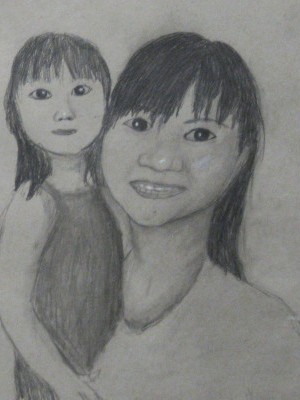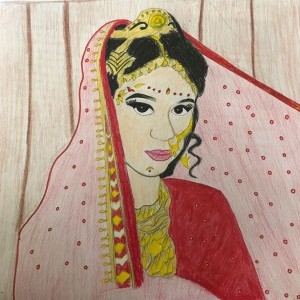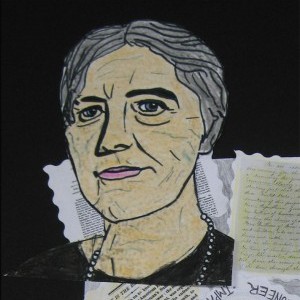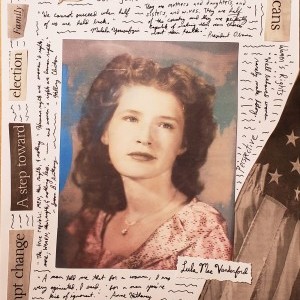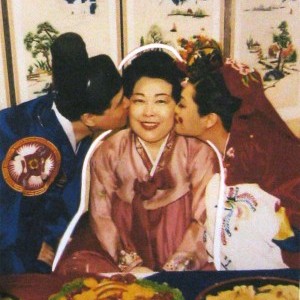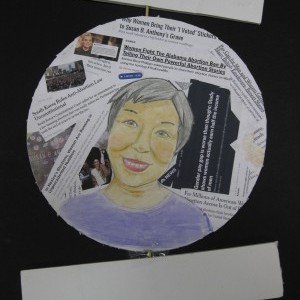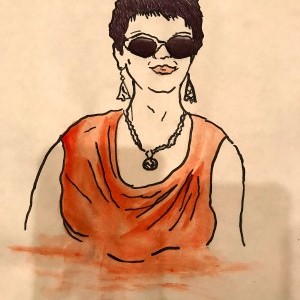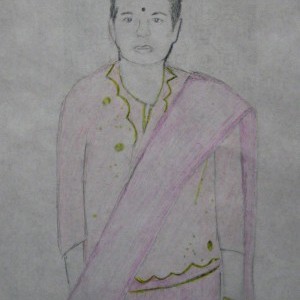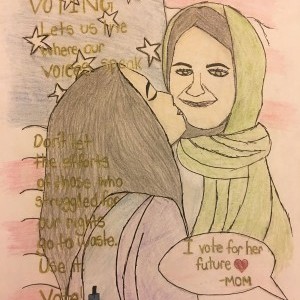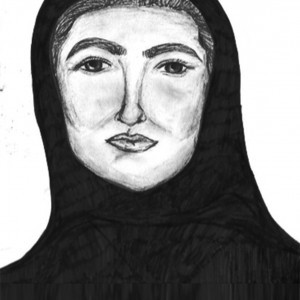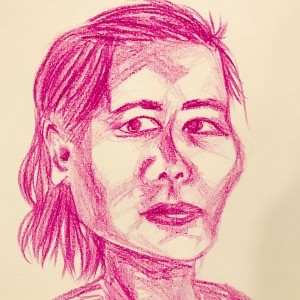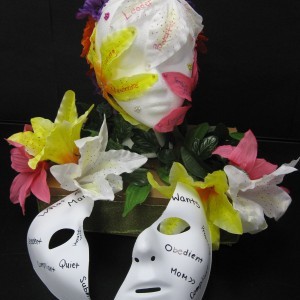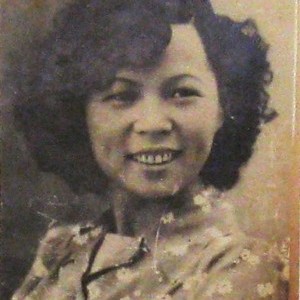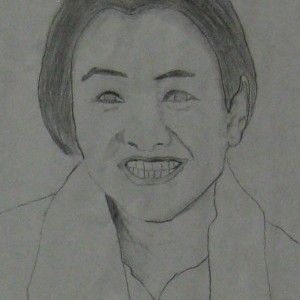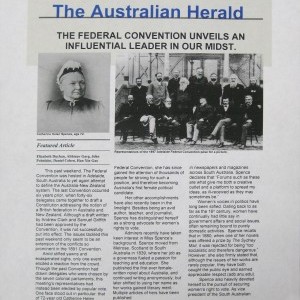Vivian Chen, Josephine Chen, Ivan Chan, Zafirah Rahman, Neeharika Reddy, Daniel Shi, Daniel Shi, Jacqueline Cho & Osiris Guerrero
Townsend Harris High School | Flushing, NY | 11th Grade
Inspirational Family Member
My Mother
On a cold December night in 1992, my mother stepped off the plane and breathed in her first breaths of the land of the free and the home of the brave. Specifically, “land of the free” was a phrase she was not accustomed to. Growing up in communist China, my mother was deprived of many freedoms that we today take for granted, the greatest of which is the right to vote. Being in a communist country, she was not allowed to fully express herself or elect representatives that would stand for her ideals. Her voice was one of millions that were silenced by authorities. Therefore, she fled to America, hoping to gain the freedoms that would enable her to live her best life.
Although her new home did seem like a land of promise and opportunity, the transition was difficult. She faced all the tribulations that being a non-English speaking immigrant entails. Being that her English was very limited, my mother was confined to a narrow field of work. She struggled to find stable, financially-sufficient jobs. She was forced to work behind the scorching heat of woks, barely earning enough to support herself. Relief was not found even after the work day was over as she was forced to go home to a tiny, dilapidated apartment in the crowded streets of Chinatown. Adding to this struggle, it was difficult for her to take advantage of government welfare programs because of her inability to speak English. However, my mother came to the realization that even though the odds were all stacked against her, America did promise her one thing, and that was a voice.
Through a strong work ethic and tremendous amounts of perseverance, my mother was able to learn English and become a citizen, guaranteeing her the right to vote. With this newly acquired freedom, she was able to finally stand up for her ideals by electing politicians that would represent her beliefs, specifically those that cared for the immigrant struggle and who were ready to fight for these underrepresented newcomers. She realized that with her right to vote, she was not simply just another number in the population census but rather someone with a voice that mattered. Therefore, the right to vote has played a very important role in my mother’s life and has enabled her to truly pursue the American dream.
Historical Figure I Admire
Alice Paul
Alice Stokes Paul was born on January 11, 1885 in a small town known as Mount Laurel in New Jersey. She was the oldest child out of four, a daughter of a wealthy Quaker, and granddaughter of William Penn, a famous Quaker in his time. She majored in biology in Swarthmore college, mastered in sociology in the New York School of Philanthropy now known as Columbia University, and then earned her PhD from the University of Pennsylvania. She went to England to study social work and met Lucy Burns who first introduced her to the women’s suffrage movement. They both worked to learn protest tactics and she brought her newly acquired knowledge back to the United States and put her skills to use. Throughout her lifetime, she organized many protests and pickets, including one major picket where about a 1,000 women picketed the White House for eighteen months. Paul was sent to jail for this and even protested while in jail. After, she helped found the the National Woman’s Party and focused on constitutional protection for women from discrimination. Paul died in 1977 of congestive heart failure and was laid to rest in her hometown. Despite her death, her legacy continues to live on.
CONTEXT
During Alice Paul’s time, racism was very prominent and was a determining factor in every aspect of everyone’s lives. Jim Crow laws allowed for public segregation between the white population and black population and emphasized a white supremacist view of the nation. Blacks were discriminated against and often even violently hurt, especially in lynches and KKK attacks. The women’s suffrage movement often not only fought for women’s rights but also fought for the rights of blacks. Additionally, the nation went through a major economic crash and fell into a decade-long depression known as the Great Depression. People had no money, banks could not repay loans, and jobs were scarce. As a response, President Franklin D. Roosevelt issued a series of acts known as the First New Deal and Second New Deal that were meant to pull the nation out of depression. The nation, slowly but surely, pulled out of depression and entered a long period of economic prosperity. Consumerism came about and people began to buy consumer goods and move into suburban areas with the mass production of cars. People began to live what was known as the “typical American life” and started buying houses, cars, and invested money in property.
CONTRIBUTION
Alice Paul fought for the ratification of the 19th Amendment in the U.S. Constitution, which allowed women to vote. Paul’s ancestry as a Quaker motivated her to fight for women’s suffrage. It was a belief of the Quakers that there should be equality between men and women. When Alice went to England, she was inspired by the Pankhurst women, who were suffragettes and led a movement to raise public awareness for women’s inequality. Paul was determined to fight for women’s rights similarly in her home country. She led the National American Woman Suffrage Association (NAWSA), and together, they marched and paraded in support of an amendment to the Constitution during President Wilson’s inauguration. However, male spectators insulted and physically attacked them. Paul later formed the National Woman’s Party after she disagreed with the political strategies of NAWSA. Paul led the party to picket the White House. Even while the U.S. was fighting in World War I, Paul continued to protest against the president. Later, they were arrested by the police, and Paul was in jail for seven months. However, she managed to organize a hunger strike even while in prison, which caused doctors to threaten to send her to an asylum and force feed her. This gained sympathy from the public, and soon Wilson announced his support for women’s suffrage. The 19th Amendment was passed, which prevented states from prohibiting citizens to vote based on sex. After, Paul and the National Woman’s Party authored the Equal Rights Amendment. Although it is not yet adopted to this day, it attempted to protect women from discrimination. Alice Paul was a vital leader of the women’s suffrage movement.
What the Project Means to Me
The experience allowed us to gain knowledge about underappreciated women in history. These women who are usually unrecognized for their efforts are able to gain recognition for what they did. Through the research of these underrepresented women in history, we were able to broaden our view on the women who had huge impacts on women’s suffrage. Instead of Susan B. Anthony being the face of suffrage, all these other women are able to be recognized for their efforts too. By connecting these extraordinary women to our own family experiences, we are able to understand the struggle these women went through in a personal manner. Knowing that our own family members had this struggle, allows us to put into perspective how realistic the issue of voting really was. Even though we were not able to experience it firsthand, knowing that this directly affected our families connects the issue of voting to ourselves indirectly. We can now understand why voting matters on all levels: local, state, and federal. It is important to vote at all levels because everyone should have an input on what happens to their community. No physical aspect of one person should keep them from voting. Gender should not keep one from voting because every person has the basic right of having a say in their community. This can only be obtained by having a right to vote and a voice in government. Additionally, by voting, people are given a voice in the government. This makes society as a whole happier knowing that everyone is represented and that the popular party will win. Knowing that a common man can affect the government through voting shows how important voting is.
Explore the Archive
More From This Class
Click on the thumbnails below to view each student's work.
Jennifer Moran, Adebola Ademola, Julia Hong, Vicki Kanellopoulos, Inga Kulma, Maimunah Virk, Deborah Molina & Kailey Van
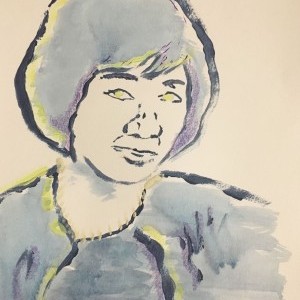
Kristina Chang, Sarah Chowdhury, Bethany Leung, Letian Fang, Cathy Choo, Kelly Chan, Emily Tan, Adamary Felipe & Kenney Son

